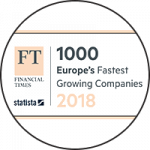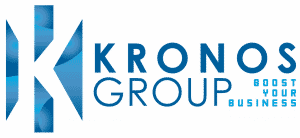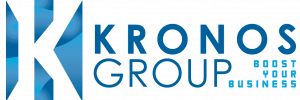Summary In the contemporary business environment, digital procurement is becoming increasingly popular and sought after by businesses around the world. The relationships …
What are the 7 essential stages of efficient procurement processes?
Stage 1: Identifying the need
The procurement process starts with identifying the specific goods or services a business requires. This involves understanding the exact items needed for day-to-day operations or strategic projects. Accurately assessing these needs is vital to avoid over-purchasing, which can lead to excess inventory, or under-purchasing, which may cause operational delays. It ensures that procurement efforts align with business goals, improving cost efficiency and resource allocation. A tip for efficiency would be to collaborate with relevant departments to gather insights on requirements and use data analytics to forecast future needs, ensuring precise and timely purchases.
Stage 2: Finding potential suppliers
Once a business’s needs are identified, the next step is sourcing potential suppliers to fulfil those requirements. It’s essential to evaluate suppliers based on factors such as cost, reliability, quality, and sustainability to avoid supply chain disruptions. According to recent supply chain research, only 56% of procurement teams use technology to track supplier performance, while 44% lack management solutions entirely, leading to inefficiencies and risks. To improve this process, businesses should implement digital procurement tools to automate supplier vetting and maintain a database of pre-approved suppliers, enabling faster and more reliable sourcing.
Stage 3: Supplier negotiation and selection
After evaluating suppliers, the next step involves negotiating pricing, terms, and delivery before making a final selection. According to a report, a significant portion of a company’s revenue goes back to suppliers due to the continual repurchase of goods and services needed for operations. Even a small reduction in supplier expenses can potentially increase profits by up to 4%. Effective negotiation and supplier selection can lead to better deals, substantial cost savings, and long-term value for the business. To enhance efficiency, establish clear negotiation strategies, leverage historical data, and involve legal and compliance teams early in the process.
Stage 4: Purchase order creation
Once a supplier is selected, the next step is to create purchase orders that outline the details of the procurement, including what is being purchased, the associated costs, and delivery timelines. A clear and accurate purchase order is vital as it helps avoid confusion, ensures compliance, and serves as a formal agreement between the buyer and supplier. This clarity reduces the risk of disputes and enhances communication. To improve efficiency, businesses should implement e-procurement tools that enable automated purchase order generation, use standardised templates, and facilitate real-time approvals, streamlining the procurement process significantly.
Stage 5: Order fulfilment and delivery
At this stage, the supplier fulfils the order, and the goods or services are delivered to the business. Timely delivery and effective quality control management are crucial, as they help reduce delays and ensure that operations continue to run smoothly. Ensuring that the right products arrive on time maintains productivity and enhances customer satisfaction. To improve efficiency, businesses should implement tracking management systems for better visibility into the delivery process, establish performance KPIs for suppliers to monitor their effectiveness, and maintain strong communication with suppliers to promptly address any potential issues that may arise.
Stage 6: Invoice and payment processing
After delivery, the supplier sends an invoice, and payment processing begins. Timely and accurate payments are vital for maintaining good supplier relationships, as they help avoid penalties or potential service interruptions. Efficient payment processing ensures that suppliers are satisfied, which can lead to better terms and collaboration in the future. To enhance efficiency in this stage, businesses should automate the invoice matching process to reduce errors, ensure clear payment terms are established upfront, and utilise electronic payment methods to expedite transactions while improving cash flow management, streamlining audits and financial planning.
Stage 7: Performance review and record-keeping
The final stage involves reviewing supplier performance, assessing the success of procurement processes, and maintaining records for future audits. Evaluating procurement efficiency and supplier performance is essential, as it informs future procurement decisions and improves accountability. This analysis not only highlights areas for improvement but reinforces successful strategies. To enhance efficiency, businesses should utilise procurement analytics tools to gather insights, maintain a supplier scorecard to track performance metrics and ensure accurate record-keeping through digital systems, which streamline audits and facilitate informed decision-making.
Why are efficient procurement processes essential?
Effective procurement processes are crucial for numerous reasons that greatly influence an organisation’s overall success. To begin with, they facilitate cost reductions by curtailing unnecessary expenditures and allowing for improved negotiation tactics with suppliers. A streamlined procurement approach conserves valuable time, which accelerates project implementation and enhances responsiveness to business demands, thereby boosting operational efficiency.
A well-structured procurement system cultivates stronger partnerships with suppliers, fostering trust and collaboration that can result in more advantageous terms and conditions. It also guarantees quality assurance through the application of consistent evaluation standards and performance metrics, which diminishes the likelihood of defects and enhances overall performance.
In addition, efficient procurement ensures adherence to legal and regulatory standards, thus reducing risks related to penalties and disputes. By promoting data-driven decision-making, firms are empowered to make informed sourcing choices, thereby enhancing strategic initiatives.
Effective procurement processes not only support operational continuity and contribute to sustainability efforts but also provide a competitive edge by enabling organisations to swiftly adapt to market fluctuations.
Drive efficient procurement functions with Kronos Group
Organisations must prioritise efficient procurement functions to drive success and stay ahead of the competition. Kronos Group specialises in procurement consulting, offering tailored solutions that optimise processes, enhance supplier relationships, and reduce costs.
By leveraging advanced strategies and tools, we empower businesses to streamline their procurement functions, ensuring timely deliveries and high-quality goods. With our expertise, companies can achieve greater operational efficiency, improve compliance, and foster innovation within their supply chains.
Choose Kronos Group as your partner in transforming procurement into a strategic advantage that propels your organisation forward. Let’s work together to elevate your procurement functions and unlock your business’s full potential.
Fighting the effects of inflation with sourcing and procurement consultants
Stay up-to-date on the latest insights on procurement, finance, and project management.
Summary Strategic procurement has become a necessity in today’s business world and organisations try to remain competitive. Having the right procurement strategies …
Summary The world of consulting has been undergoing a massive transformation and management consulting jobs are experiencing the impacts of these changes. …
FAQ
Price: The cost of goods or services; crucial for cost-effectiveness.
Product: The specifications and quality of what is being procured.
Place: The logistics and delivery of products to the organisation.
Effective procurement strategies can lead to cost savings, improved supplier performance, enhanced product quality, and increased agility in responding to market changes, all of which positively impact overall business performance.
Organisations can ensure compliance by establishing clear procurement policies, conducting regular audits, utilising approved supplier lists, and providing training for procurement staff.















